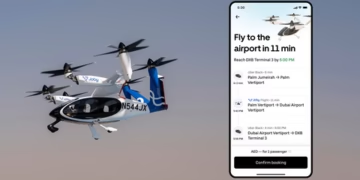TRAIN, TUBE & BUS FARES DOUBLED WHILE RYANAIR’S FARES DROP
Ryanair, Europe’s No. 1 airline, today (30 May) encouraged UK consumers to beat inflation by flying Ryanair after the latest ONS (Office of National Statistics) figures revealed the cost of travel in the UK rose by 134% in the last 15 years*, driving up inflation, while the average Ryanair fare, now at just £33, declined by 8% (ave. fare of £36 in 2004).
UK customers are paying more for travel than ever before with cost of a bus ticket doubling since 2004 (+105%*) and rail fares increasing by 86%. A 7-day London Travelcard cost £29.20 in 2004, today it has a price tag of £50.50, making it cheaper to catch a £33 Ryanair flight than the tube/bus** for a week.
Ryanair continues to lower air fares, while train, tube and bus fares are all rising, and UK customers will save over £4.4bn this year by choosing Ryanair’s low fares over high fare rivals, with 350 exciting Ryanair destinations from 34 UK airports to choose from.
To further help beat inflation, Ryanair has released seats for sale across its European network, from just £14.99 for travel in June, which are available for booking until midnight Friday (31 May).
Ryanair’s Chief Marketing Officer, Kenny Jacobs said
“Our message to UK consumers is simple: choose Ryanair to beat inflation and save money. The ONS has confirmed that the cost of travel has risen by 134% over the past 15 years, with one exception – Ryanair bucks the costly trend with our lowest fares dropping from £36 to £33.
UK customers will save over £4.4bn this year by choosing Ryanair’s low fares over high fare rivals, at a time when train fares, bus fares and other travel related expenses are costing more than ever
To save UK consumers even more money, we are releasing seats on sale from £14.99 for travel in June, which are available for booking until midnight Friday (31 May). Since these low amazing prices will be snapped up quickly, customers should log onto www.ryanair.com and avoid missing out.”
*Retail Price Index. 2004 vs. 2019
**https://londonist.com/2011/11/london-transport-fares-2000-2012
